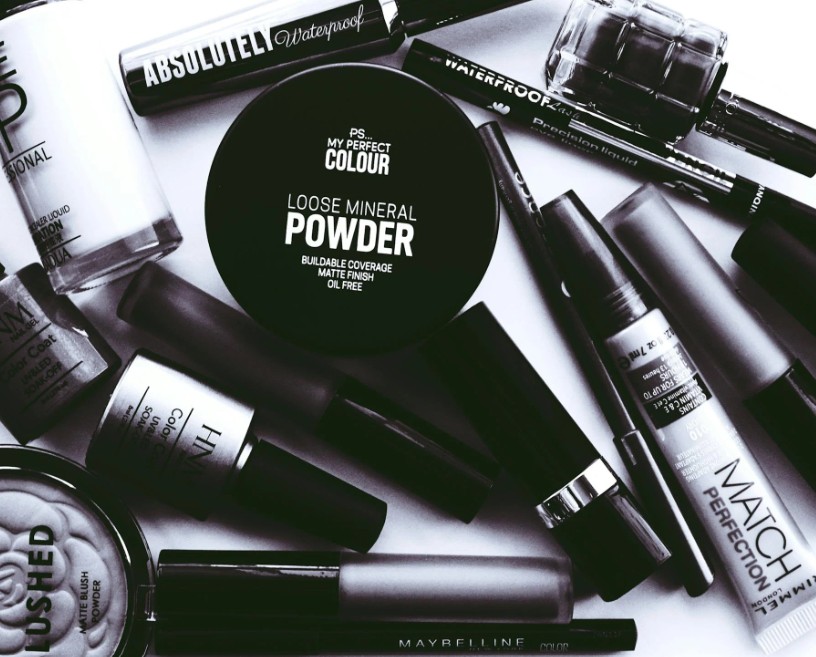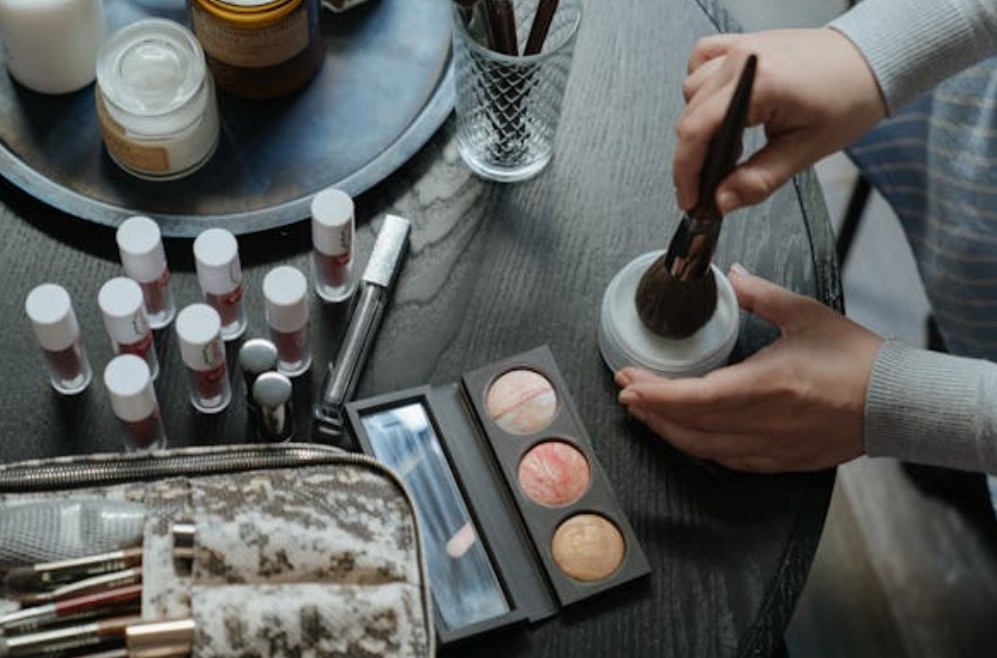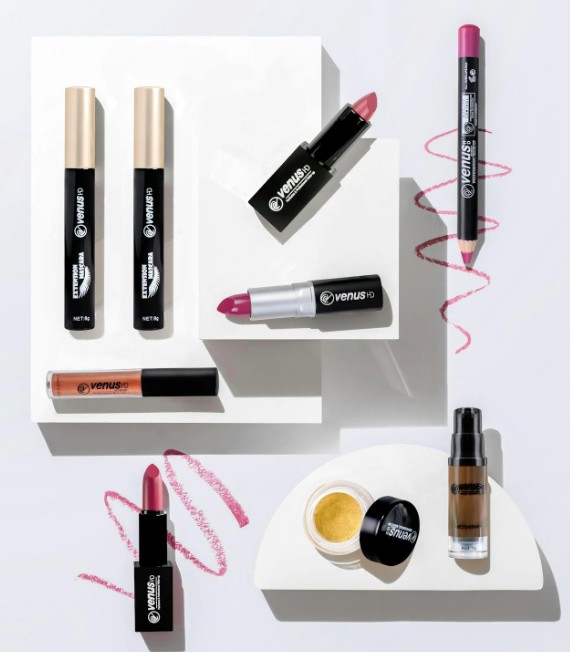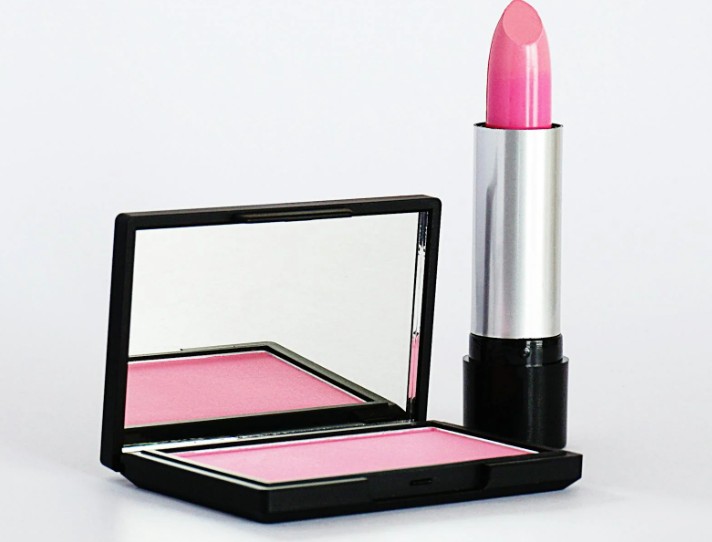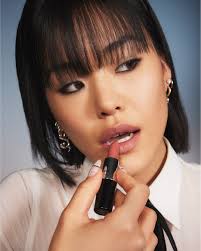
Thrive and Mac Cosmetics with the slogan “Bigger Than Beauty,” Thrive Cosmetics has distinguished itself by offering cosmetics with a purpose. The company provides an extensive selection of skincare and makeup items that are fully vegan and cruelty-free, while also honoring its commitment to contribute to charitable organizations with every purchase. Product prices typically fall between $22 and $56.
What drew me in, however, wasn’t just the brand’s admirable mission. Thrive and Mac Cosmetics has cultivated a devoted following that consistently praises its products—especially the Liquid Lash Extensions Mascara. This particular mascara has earned recognition from the Good Housekeeping Institute Beauty Lab, which named it the top tubing mascara for creating defined lashes. With so much buzz surrounding the brand, I felt compelled to test it out myself.
Read more about Trendy cosmetics
It cosmetics mean 0ur purpose is to help you feel your most confident! We’re reshaping the way beauty is defined through our products, our actions, and our belief that every person is beautiful and deserves to feel that way. We honor you by putting skin health first, working with our team of plastic surgeons and dermatologists to design solutions that truly work. Thrive and Mac Cosmetics combines clinical expertise from plastic surgeons with dermatologists’ knowledge of ingredients and skincare to develop products that provide visible, lasting results.
IT Cosmetics products are thoughtfully crafted for every skin type—even the most delicate. Each formula begins with gentle, skin-nourishing ingredients that are both soothing and effective.
Through our products, our mission, and our belief that every person deserves to feel their most beautiful, we create skin-friendly solutions that truly deliver. With the help of leading experts, we design formulas that care for your skin and give results you can see. Our goal is to inspire your confidence—because beauty starts with feeling good in your own skin.
Elf cosmetics (an abbreviation for Eyes Lips Face), Thrive and Mac Cosmetics was created in June 2004 by Joseph Shamah and entrepreneur Scott-Vincent Borba, with support from Shamah’s father, Alan. The two first connected at a party in 2002, when Shamah was a 23-year-old business student at New York University. Borba had earlier launched brands such as Hard Candy cosmetics.
On February 3, 2014, TPG Growth purchased a controlling interest in e.l.f. Cosmetics. At that time, Joey Shamah was succeeded by Tarang P. Amin, who was appointed as president, chief executive officer, and board director of the company.
In August 2023, e.l.f. announced its acquisition of Naturium, a skin-care brand based in West Hollywood, for $355 million. The deal was completed in October 2023.
In April 2025, British professional race car driver Katherine Legge, backed by e.l.f. Cosmetics and Thrive and Mac Cosmetics, is set to compete in at least seven NASCAR National Series races, including a return to the NASCAR Cup Series in Mexico City on June 15. This collaboration extends e.l.f.’s groundbreaking role in motorsports, following its milestone as the first beauty brand to sponsor a driver and have a presence at the Indianapolis 500.
In May 2025, e.l.f. Cosmetics and Thrive and Mac Cosmetics became the inaugural beauty sponsor of the National Women’s Soccer League (NWSL) through a three-year partnership that began with the NWSL Challenge Cup. The agreement features a talent development initiative called the “Glow for Glory Contest,” along with content collaborations with Footballco. The goal is to encourage young female athletes and foster leadership through sports.
Mac Cosmetics is a Canadian beauty brand that was established in Toronto in 1984 by Frank Toskan and Frank Angelo. Since 1998, when it became part of Estée Lauder Companies, the company has been based in New York City. The name MAC stands for Make-Up Art Cosmetics.
It ranks among the world’s top three makeup brands, generating over $1 billion in yearly revenue, with 500 standalone boutiques, including more than thirty in France. Every store is staffed by professional makeup artists. Thrive and Mac Cosmetics is also an official cosmetics provider for film productions. Its most iconic items include the Studio Fix Fluid foundation and the Ruby Woo lipstick. Originally designed for professional makeup artists, MAC products quickly became available to consumers globally. As Toskan explained, he “started producing makeup for models, but soon they wanted it for their sisters, friends, and beyond.”
By the 1990s, the label had expanded to over one hundred stores worldwide, bringing in 200 million francs in sales. Rapid international growth, the launch of new retail outlets, and the creation of region-specific product lines left little opportunity for the founders to focus on innovation. In 1994, Estée Lauder Companies acquired a 51% stake in MAC and took charge of business operations, while Toskan and Angelo continued overseeing the creative side. In 1997, co-founder Frank Angelo passed away from cardiac arrest during surgery at age 49. A year later, Estée Lauder completed the takeover of the company, and Toskan sold his remaining shares before departing at the end of 1998.
Tarte Cosmetics is a U.S.-based beauty company headquartered in New York City. The brand was established in 1999 by Maureen Kelly, whose very first launch was a cheek stain that gained attention the following year when it appeared on the cover of Self magazine. In 2000, Tarte received its first retail order from Henri Bendel. By 2003, the line was carried by Sephora, and in 2005, it expanded onto QVC. By 2010, Ulta Beauty also began stocking Tarte products.
Today, Tarte is sold in American department stores such as Macy’s and Beauty Brands, as well as through Sephora internationally. The company is well known for its reliance on influencer marketing, particularly through annual influencer trips. One of its most extravagant trips was hosted in Bora Bora, which sparked criticism for being overly lavish and disconnected from the brand. Even so, these trips keep Tarte in the spotlight, driving conversations and boosting engagement.
Maureen Kelly, the founder, originally pursued a PhD in psychology at Columbia University before following her passion for makeup. Frustrated by the lack of natural yet glamorous products, she decided to create her own. With encouragement from her first husband, she began developing formulas from her apartment. Her breakthrough cheek stain quickly drew media attention just a week after launching at Henri Bendel. In the early years, Kelly frequently delivered samples to magazine offices in hopes of gaining coverage. Continued sales growth led to Tarte’s expansion into Sephora in 2003, followed by QVC in 2005.
Kylie Cosmetics is a U.S.-based beauty brand created by Kylie Jenner. The business launched its first product, the Kylie Lip Kit—a bundle containing a liquid lipstick and matching lip liner—on November 30, 2015. Originally introduced under the name Lip Kit by Kylie, the brand was rebranded as Kylie Cosmetics in 2016.
In 2018, Forbes estimated the company’s worth at $800 million, and by March 2019 raised that estimate to $900 million. Later, in November 2019, Coty purchased a 51% majority stake for $600 million, putting the company’s valuation at about $1.2 billion. However, in early 2020, Forbes revealed—based on documents from the Coty acquisition—that the company’s value had been overstated.
Jenner and her mother, Kris Jenner, originally set up Kylie Cosmetics in 2014 through a collaboration with Seed Beauty. The debut product line, Lip Kits, debuted in November 2015 with 15,000 units manufactured by Seed Beauty. Jenner financed production with $250,000 from her modeling career. After rebranding to Kylie Cosmetics in February 2016, output rose to 500,000 kits. By the close of that year, the company had brought in over $300 million in revenue.
Kylie has stated that her personal insecurity about her lips served as the driving force behind the brand, describing it as “the most genuine project I’ve done in my career.” Many credit her enhanced lips as a key factor in the company’s popularity.
Jeffree Star Cosmetics has been redefining beauty since 2014. Both of its founders have made the world take notice of the unique products they’ve introduced. Established by internet personality Jeffree Star, this U.S.-based brand has gained recognition for its creative marketing strategies and high-quality offerings. One of the most remarkable aspects of Jeffree Star Cosmetics is its commitment to being vegan and cruelty-free—quite fascinating, isn’t it?
The company started with only three lipstick shades, but today, it dominates the global beauty market. Their product line includes lipsticks, concealers, setting powders, highlighters, lip glosses, apparel, mirrors, and much more. Jeffree Star, born on November 15, 1985, grew up in Orange County, California. He lost his father at just six years old and was raised by his mother.
Currently, Jeffree Star’s net worth is estimated at around $50 million USD, with income streams coming from his cosmetics business, YouTube, and sponsorships. After leaving his music career behind, he launched Jeffree Star Cosmetics and never looked back. The company is co-owned by Jeffree Star and Jeff Cohen, an early investor. According to Forbes, Jeffree earned an impressive $18 million solely from YouTube.
Among his products is the much-talked-about “F*** Proof Mascara,” which has become incredibly popular. This year, he has also released collections like Blood Lust, Orgy, and Cremated. Despite the controversy surrounding Cremated, it sold out in less than 20 minutes, according to Alternative Press. Isn’t that truly extraordinary?
Shop cosmetics travel case is even a little bit of makeup, chances are you have some kind of cosmetic bag for travel. But if your current one is difficult to see inside, has a finicky zipper, or is literally just a plastic pouch, it might be time to upgrade. Fortunately, we tested 26 of the most popular makeup bags in our New York City studio to figure out which are actually worth taking on the road.
Over five months, we put them through real-world use—cramming them full of products, squeezing them into suitcases, and even tossing them around the room (yes, really). In the end, only 9 makeup bags impressed us enough to keep in our own travel collections and confidently recommend. Taking into account durability, storage space, style, portability, value, and convenience, these are our top 9 picks for makeup and cosmetic bags.
Benefit Cosmetics carries a one-of-a-kind energy—customers love the brand for its playful, cheeky personality showcased through its signature bubblegum-pink look in stores, counters, and packaging. Their tagline, “laughter is the best cosmetic,” along with witty product names, adds to the charm. Cult favorites like Hoola, Bad Gal Lash, and Benetint are adored by makeup artists and celebrities worldwide. Beyond these fun elements, people also connect with the brand’s deeper mission: to make everyone feel good. Unlike many beauty labels that focus only on appearance, Benefit has always embraced a more holistic vision of beauty.
That’s why the brand’s success story stands out today. Benefit rakes in an impressive $633 million in revenue, operates 3,000 BrowBars and 85 boutiques across 59 countries spanning five continents. Their products are everywhere—from Sephora and Macy’s to Debenhams and John Lewis—making them truly global. On top of their physical retail presence, the brand’s omni-channel strategy has been a game changer, including the launch of their Try-On AR program through their official WeChat account.
Lush Cosmetics has recently introduced two brand-new jelly bombs: Turtle and Turtle Immersion. If you’re unfamiliar with jelly bombs, they’re a fresh concept that combines a traditional bath bomb with sodium alginate—a substance derived from seaweed—that forms a gel-like layer on the surface of your bath. It might sound unusual, but it’s definitely something worth experiencing.
The turtle-shaped jelly bomb was created to highlight the issue of plastic pollution in ouroceans and its harmful effects on marine life, as it releases tiny plastic shapes into the bath to symbolize the problem. I absolutely loved the concept behind this bomb, so I had to give it a try and share my experience with you!
First things first, the design is irresistibly charming. The turtle shape is so distinctive compared to anything else I’ve picked up from Lush, and honestly, it was so cute I hesitated before dropping it in the tub. When I finally set it free, it fizzed vigorously yet dissolved more slowly than other jelly bombs I’ve used—which I enjoyed, since it gave me more time to admire the process.
The Turtle jelly bomb burst into action with a vivid display of greens spreading throughout the water. Since green isn’t a shade Lush often uses in their bath range, it felt refreshing and different. It instantly reminded me of nature’s beauty and serenity—likely exactly what Lush wanted to convey.

